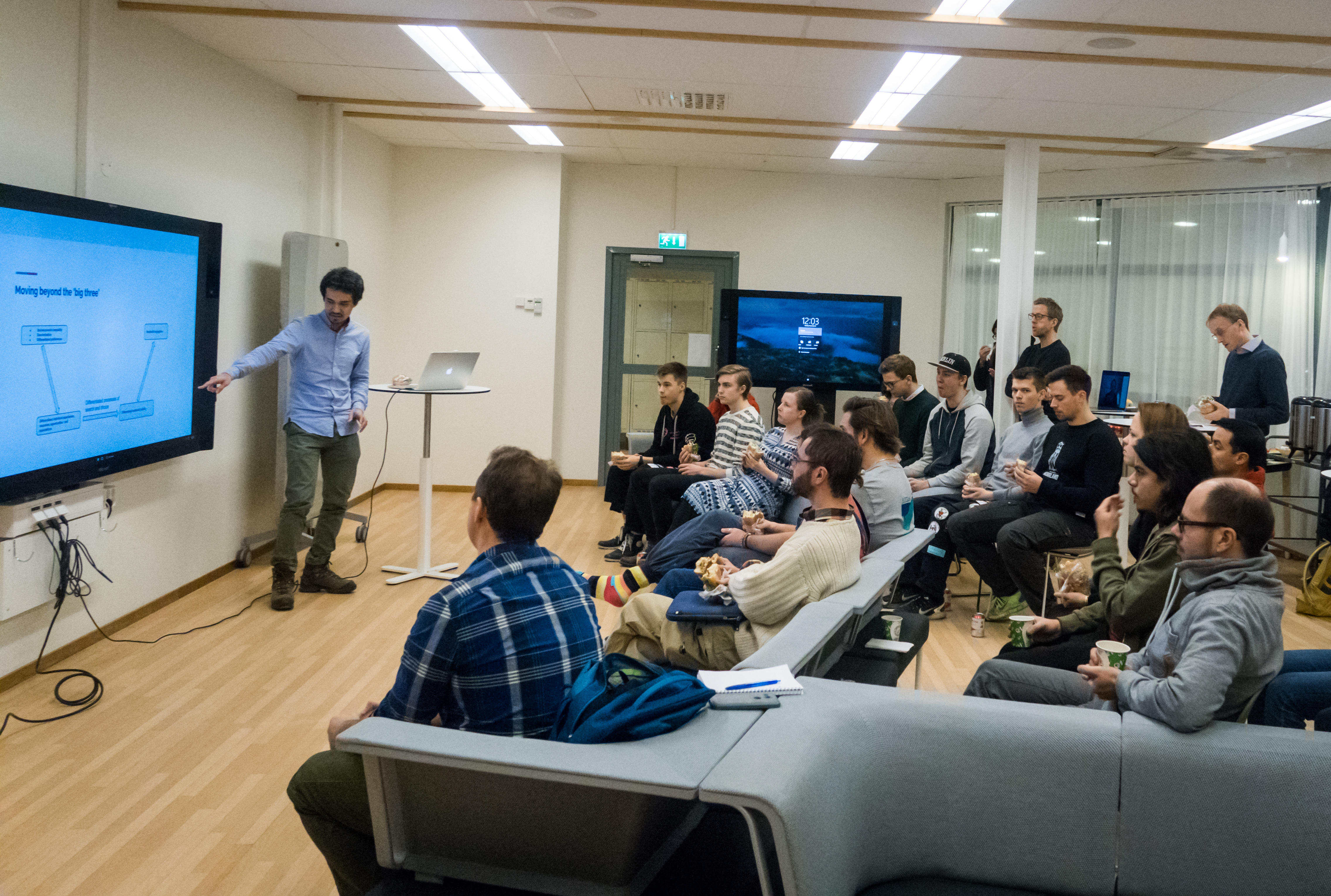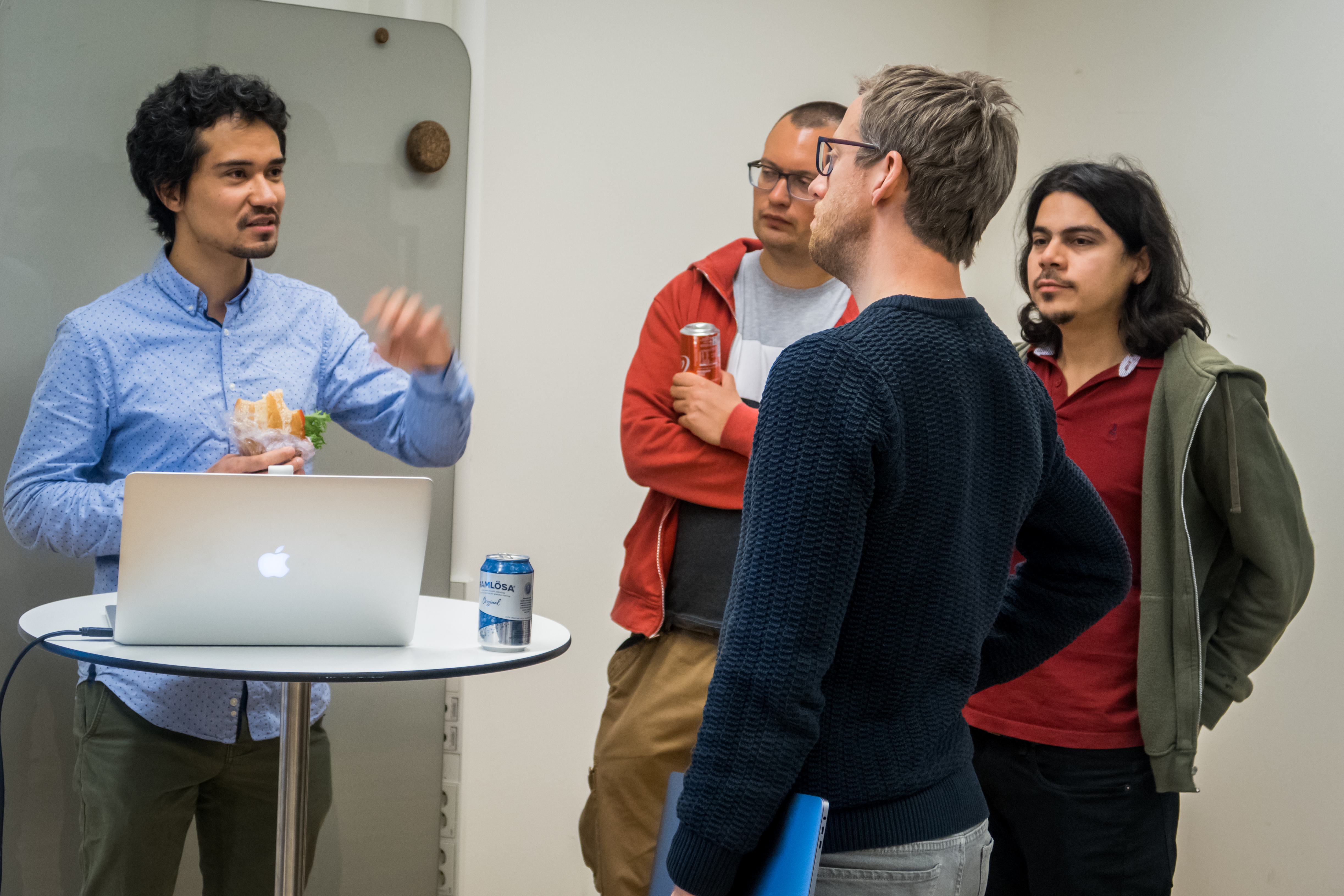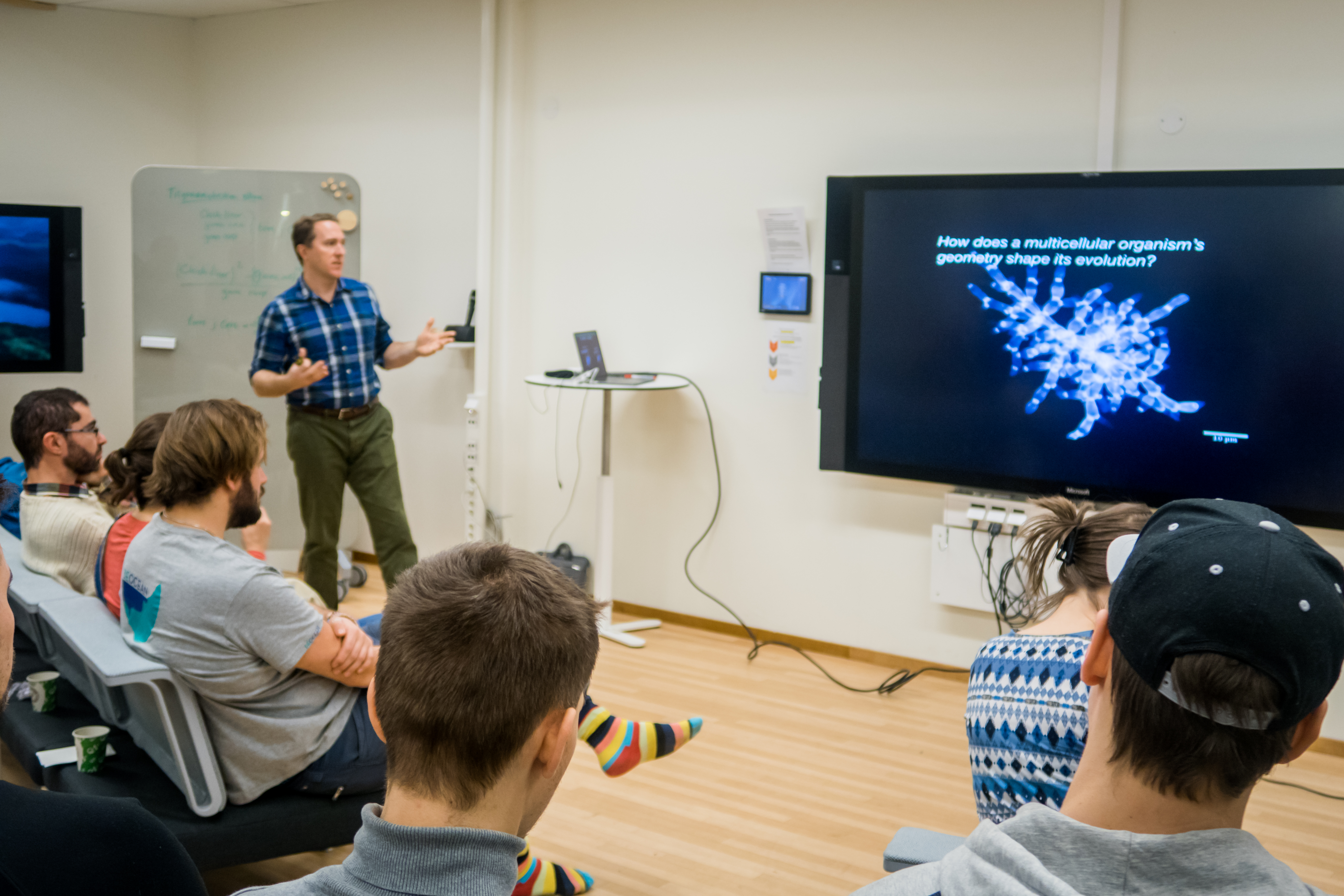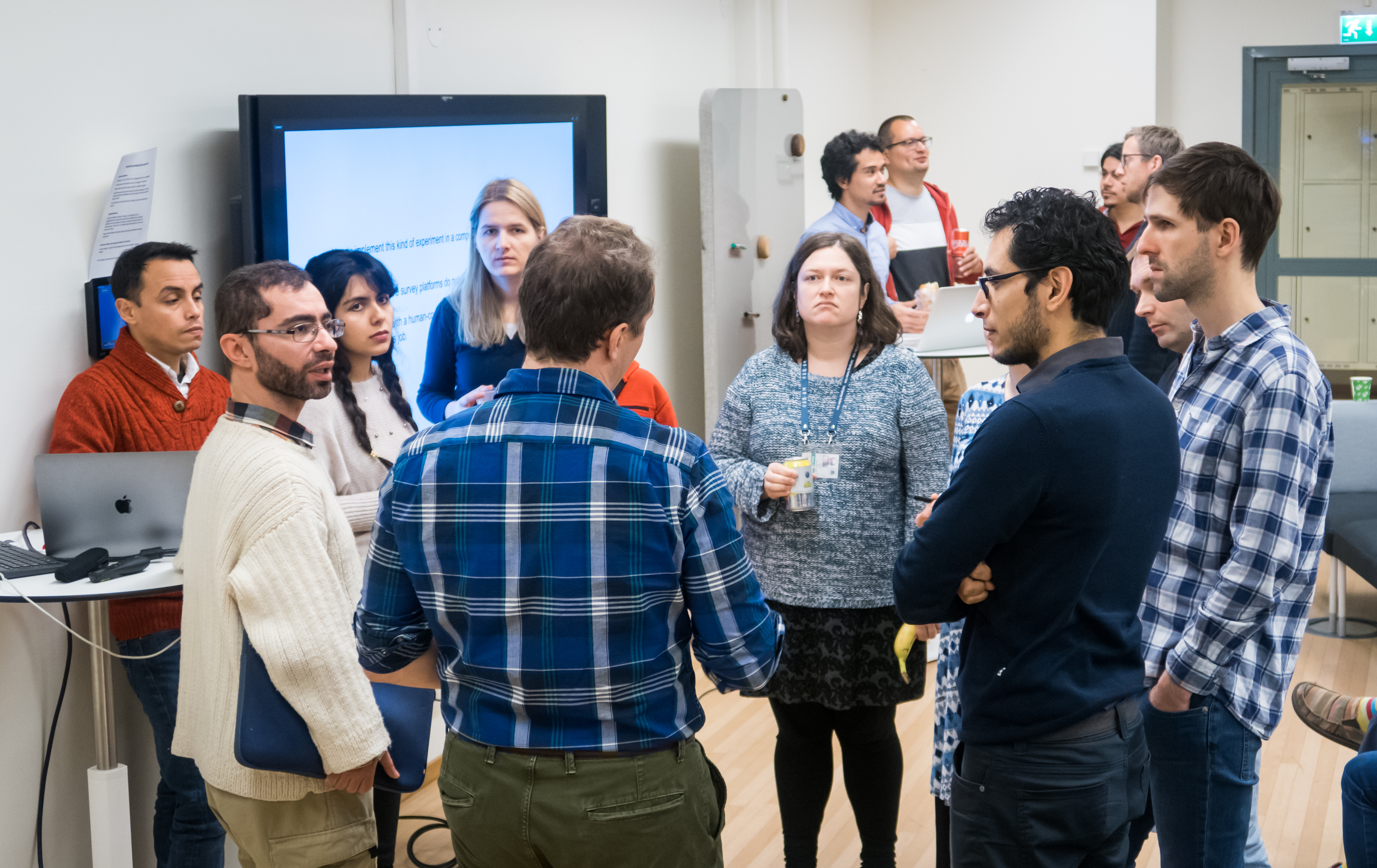Networks in Biology and Urban Setting
November 27, 2018
First Pitcher: Guilherme Chihaya, Researcher at Department of Geography and Economic History
Title: Does where you go for coffee matter when you look for an apartment?
Research has shown that people are more likely to move to places close to their workplaces and where their relatives live. Part of it comes from an actual desire for a shorter commute and easy access to one’s family, but there is a reason to believe that this utilitarian effect is not the only factor. One theory that has gained traction is named socio-structural sorting, according to which people’s experiences of the city shape their mental maps of which neighbourhoods are to be considered when looking for a place to live. In this way, you are more likely to move closer to your job also because you are more likely to have experienced nearby neighbourhoods and identified them as liveable. Guilherme proposes a method based on computer-assisted discrete-choice experiments to capture people’s usage of the urban space and the resulting mental maps of the city, relating them to their residential choices in a randomised vignette experiment.
Second Pitcher: Eric Libby, Associate Professor, Integrated Science Lab, Department of Mathematics
Title: Consequences of Organismal Geometry







